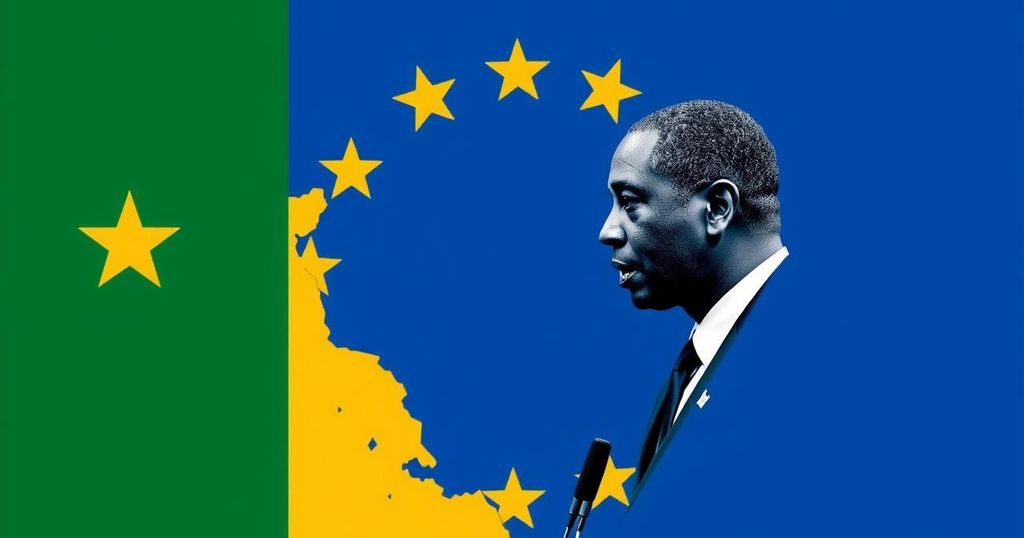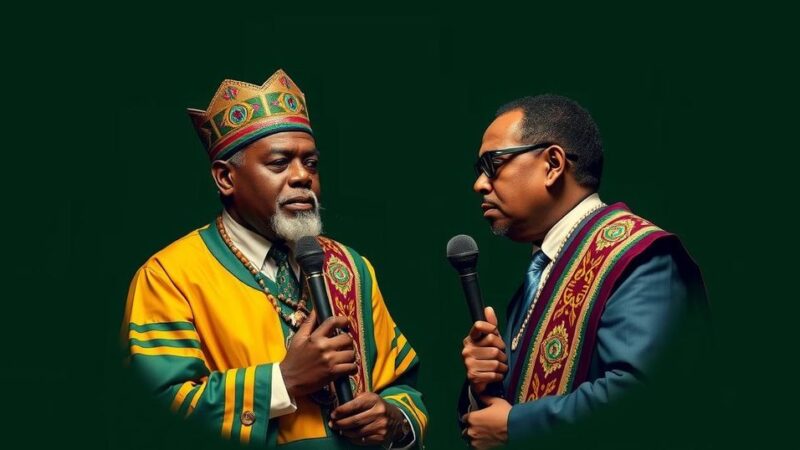The Democratic Republic of Congo is considering a constitutional review that has sparked fears among the opposition that President Felix Tshisekedi aims to extend his tenure. Tshisekedi plans to form a commission to draft a new constitution, arguing that the current one does not reflect Congolese realities. Opposition leaders and the Catholic Church have expressed strong opposition to any changes, fearing destabilization and the concentration of power. The situation highlights a significant political rift as the country prepares for possible major constitutional shifts.
The Democratic Republic of Congo (DRC) is contemplating a constitutional review that has raised concerns among opposition groups who fear that this initiative could be a tactic by President Felix Tshisekedi to prolong his administration. During a recent visit to Kisangani, President Tshisekedi indicated that he intends to establish a national commission next year comprising Congolese from various disciplines to draft a constitution that better embodies Congolese identity and aspirations. President Tshisekedi has criticized the current constitution, asserting that it was concocted abroad and does not align with the realities of Congolese life. The constitution in question was adopted in 2006 following a referendum aimed at stabilizing the political landscape after years of turmoil. While the current opposition, which once included Tshisekedi’s father, Étienne Tshisekedi, vehemently opposed previous attempts by former President Joseph Kabila to reform the constitution, the leadership has now flipped. Augustin Kabuya, the interim chairman of Tshisekedi’s party, UDPS, has openly stated that the existing constitution has revealed inadequacies in governance and must evolve to address the dynamic political landscape of Congo. Despite no official statements regarding term limits or mandates of elected officials, there are implied suggestions within the UDPS that the president’s term should be interpreted differently. President Tshisekedi emphasized that any significant changes to the Constitution would require public endorsement, stating, “To change that, only the people can decide, not the president.” However, critics within the opposition perceive this move as a guise for Tshisekedi to ensure his continued rule. Leaders such as Olivier Kamitatu and Martin Fayulu have expressed resolute opposition to any constitutional modifications. In addition, the Catholic Church’s bishops have advised against pursuing this constitutional revision, warning it could lead to increased instability within the nation. The growing discourse surrounding constitutional amendments poses critical implications for DRC’s political future, with substantial rhetoric and resistance emerging from all corners. As the DRC enters this period of constitutional debate, the fabric of its democracy, rooted in principles established since 2006, hangs precariously on the balance, demanding careful deliberation and public engagement to ensure that the aspirations of Congolese citizens are truly represented and safeguarded.
The discussion regarding the potential revision of the constitution in the Democratic Republic of Congo (DRC) stems from longstanding tensions surrounding presidential terms and governance. The constitution currently in effect was established in 2006 following a period of conflict and was intended to guide the nation toward a more democratic framework. This constitution has faced various challenges over the years, particularly from political leaders who have sought to amend it to consolidate power or extend their mandates. The ongoing debate is instrumental as it highlights the continual struggle between political factions within the DRC, especially with the current administration under President Felix Tshisekedi, whose tenure and intentions are now under scrutiny as potential changes may affect the democratic landscape of the country.
In summary, the proposed constitutional review in the Democratic Republic of Congo raises significant concerns regarding the intentions behind such changes, particularly from opposition figures skeptical of President Tshisekedi’s motive to extend his rule. The response from opposition leaders and civil society underscores a unified resistance against any amendments perceived to erode democratic principles established in the country. With the stakes high, the outcome of this debate will play a critical role in shaping the future political trajectory of the DRC, necessitating broad public involvement and dialogue to prevent further political unrest.
Original Source: www.theeastafrican.co.ke






